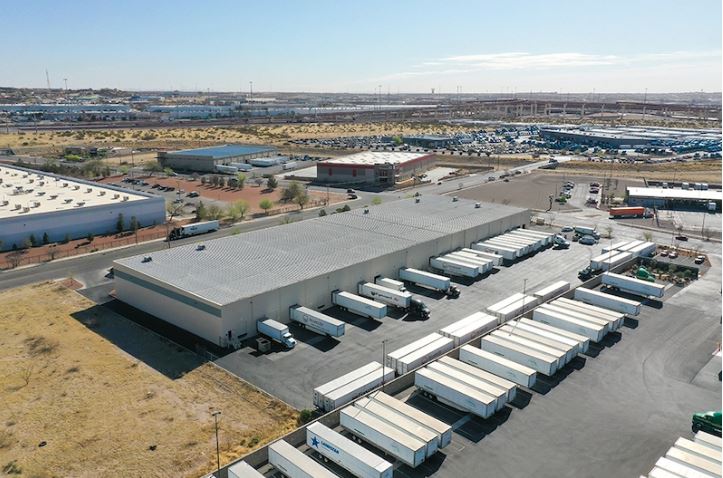JLL Capital Markets has closed the sale of a four-building industrial portfolio totaling 326,166 square feet in El Paso, Texas and Santa Teresa, New Mexico.
JLL marketed the portfolio on behalf of Blue Road Investments. STAG Industrial acquired the portfolio.
The portfolio comprises four-buildings of infill distribution space that is 100% leased to a dynamic tenant roster of diverse industries.
The buildings are located at 150 Earhardt Way, 9494 Escobar Drive, 9555 Plaza Circle and 9571 Pan American Drive within the North American borderplex, a combination of the Las Cruces and El Paso MSA’s in addition to Cuidad Juarez, Mexico. The borderplex is home to more than 2.7 million residents with one of the largest bilingual workforces in the world and the seventh largest manufacturing hub in North America, employing more than 275,000 individuals in the region. The portfolio features premier, infill logistics locations with immediate access to vital local and regional highways infrastructure including Interstates 10 and 25, Loop 375, UP Intermodal, Ysleta-Zaragoza International Bridge and the Santa Teresa Port of Entry. As a result, the properties are well positioned to ship across the U.S. within two to three business days.
The JLL Capital Markets Investment Sales and Advisory team representing the seller was led by Senior Managing Directors Dustin Volz and Trent Agnew, Directors Dom Espinosa and Zach Riebe, Associate Josh Villarreal and Analyst Jack Copher.







